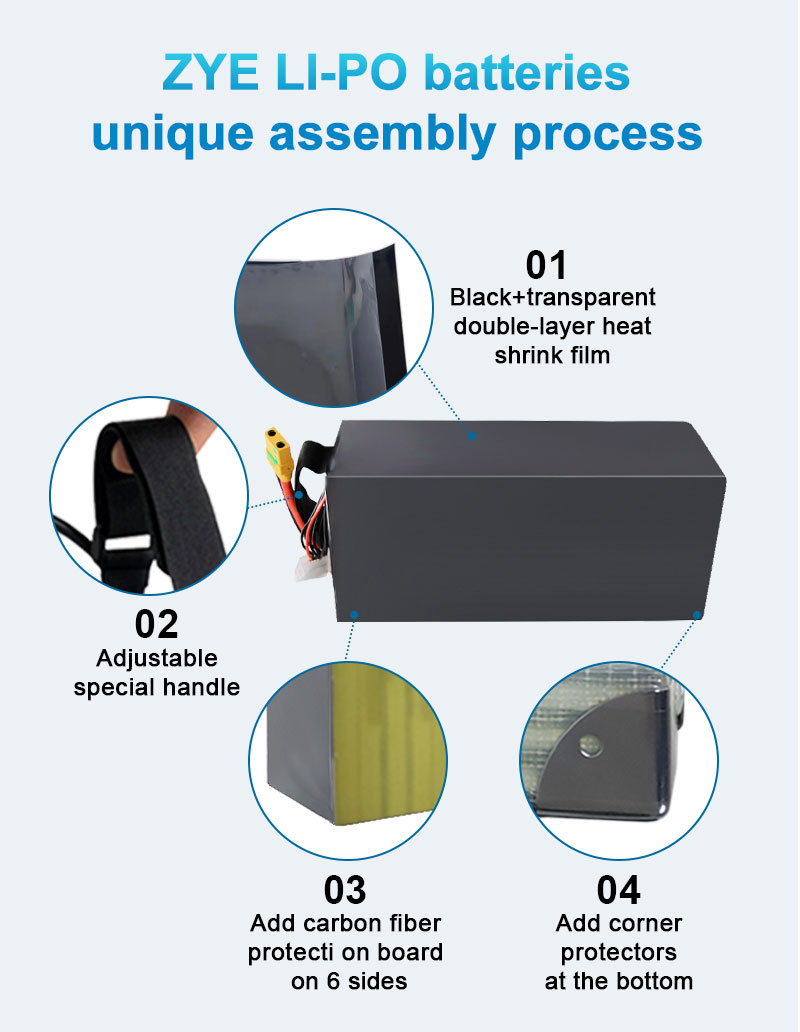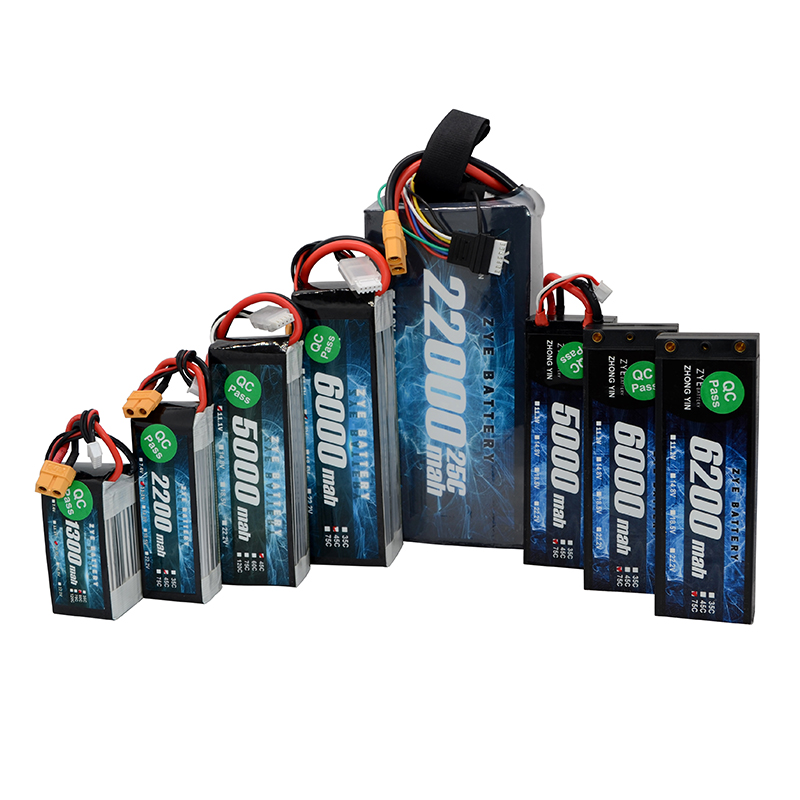Are Lipo batteries safer than li ion?
2025-07-31
Lithium polymer (LiPo) batteries have become increasingly popular in various electronic devices and applications.
In this comprehensive guide, we'll explore the nature of LiPo batteries, their classification, and how they compare to other power sources.
Safety Considerations for LiPo Batteries
While lipo-battery-pack offers numerous advantages due to their DC power characteristics, it's crucial to handle them with care:
1. Proper Storage: Store LiPo batteries at room temperature and at a partial charge (around 50%) when not in use for extended periods.
2. Charging Precautions: Always use a charger specifically designed for LiPo batteries and never leave them unattended while charging.
3. Physical Protection: Protect LiPo batteries from physical damage, as punctures or deformations can lead to short circuits or fires.
4. Temperature Sensitivity: Avoid exposing LiPo batteries to extreme temperatures, as this can affect their performance and safety.
By understanding and respecting the DC nature of LiPo batteries, users can maximize their benefits while ensuring safe operation.

lipo-battery vs Li-ion: Which Lasts Longer?
LiPo batteries are known for their high energy density, meaning they can pack a lot of power into a small, lightweight package. This makes them ideal for applications where size and weight are crucial, such as in drones or portable electronic devices.
Li-ion batteries, on the other hand, typically have a longer overall lifespan in terms of charge cycles. They can withstand more charge-discharge cycles before their capacity begins to degrade significantly.
It's worth noting that the actual lifespan of any battery depends on various factors, including usage patterns, charging habits, and storage conditions. Proper care and maintenance can significantly extend the life of both LiPo and Li-ion batteries.

Safety Tips for Using lipo-battery
While LiPo batteries offer impressive power in a compact form, they require careful handling to ensure safe operation. Here are some essential safety tips for using lipo battery:
Use a compatible charger: Always use a charger specifically designed for LiPo batteries. These chargers have built-in safety features to prevent overcharging and balance the cells properly.
Monitor charging: Never leave a charging LiPo battery unattended. Keep an eye on the charging process and disconnect the battery once it's fully charged.
Avoid overcharging: Overcharging can lead to swelling, reduced capacity, and potential fire hazards. Follow the manufacturer's guidelines for charging times and voltage limits.
Store properly: When not in use, store your LiPo battery in a fireproof container at room temperature. Avoid exposing it to extreme heat or cold.
Inspect regularly: Check your battery for any signs of damage, such as swelling, punctures, or deformities. If you notice any issues, discontinue use immediately.
Use a balancing plug: When charging, always use the balancing plug to ensure all cells within the battery are charged evenly.
Avoid deep discharge: Don't let your LiPo battery's voltage drop too low. This can cause irreversible damage and reduce its overall lifespan.

By following these safety guidelines, you can minimize the risks associated with using high-capacity LiPo batteries and enjoy their benefits responsibly.
If you're looking for high-quality LiPo batteries or have more questions about battery care and maintenance, don't hesitate to reach out to our team of experts. We're here to help you get the most out of your battery-powered devices. Contact us at coco@zyepower.com.
























































